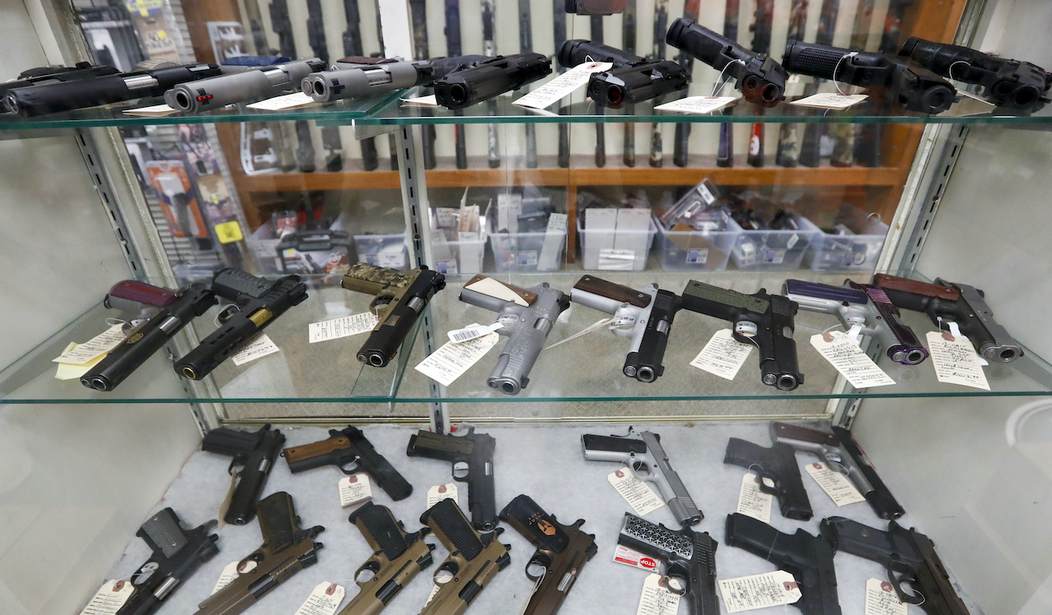I know a number of doctors that I consider friends. If they tell me something, I listen and take it to heart. They have my trust and I know they won't steer me wrong. They're also people who understand what they know and, more importantly, what they don't know.
Yet many physicians who get into the gun discussion lack that self-awareness.
Over the years, I've written a lot about anti-gun doctors. They tend to believe that their expertise in healthcare translates beyond that realm simply because they sometimes have to treat gunshot wounds.
And it seems one of those doctors has written a book that offers "solutions" to so-called gun violence.
Cedric Dark believes violence is a disease. Sometimes it manifests in quiet, private ways; other times, it’s public and deafening. As a mosquito transports malaria, a gun delivers violence, Dark says—making death an all too likely prognosis.
For Dark, a bookish and unflappable 45-year-old, this isn’t just a matter of semantics. Like millions of Americans, he’s lost a loved one to gun violence. But it’s his job, as an emergency medicine physician in Houston, at one of the state’s top level I trauma centers, that gives him a close-up view of what a bullet does to the human body. Nearly every day, he and his colleagues dig their hands into the wounds of gunshot victims to try to stop the bleeding and prevent vital organs from shutting down. “Orchestrating chaos is the hardest part of this job,” Dark says.
ER docs and trauma surgeons throughout the country pull off heroic feats—sometimes literally bringing patients back from the dead—but even with the best care, gunshot wounds are often lethal. Firearm violence is the number one killer of kids in America, taking 4,603 young lives in 2022. Such statistics can feel abstract and numbing. Even after the most egregious mass shootings, policy proposals fizzle out, and, as groups funded by gun manufacturers successfully lobby against meaningful reforms, so does public engagement with the topic.
...
What Dark and many of his fellow emergency physicians can’t abide is the notion that there’s nothing to be done about gun violence. In recent months the topic has seen renewed scrutiny. In June, the U.S. surgeon general issued an advisory that labeled firearm violence a national public health crisis. In July, a gunman tried to assassinate former president Donald Trump, and though it’s not clear whether that will spur policy changes, past political assassination attempts have been catalysts for reform. This week, in the wake of those developments, Dark published his new book, Under the Gun: An ER Doctor’s Cure for America’s Gun Epidemic, coauthored with physician and writer Seema Yasmin. It offers a series of narratives from the ER that are woven together in support of practical, incremental policies aimed at harm reduction. Dark says these small measures will keep many Americans out of the trauma bay.
Among other things, this gets into the NRA famously telling doctors to stay in their lane, and how a few weeks later, a doctor was killed by her ex-fiance, as if that actually illustrated anything.
See, the problem here is that Dark is an emergency room physician, not an expert on governmental policy, constitutional rights, or anything else that covers the gun debate. He sees the results of shootings, which is well within his wheelhouse, but the rest of the discussion is a different matter entirely. In that regard, he's an amateur anti-gunner who is trying to use his credentials to push a narrative.
Doctors who try to argue that their jobs make them experts on the subject don't seem to understand that in most cases, all they see are the people wheeled into the emergency room after being shot. Based on my own--admittedly limited--emergency room experience, most of the time you're focused on the injuries, not the specifics of how they happened. You don't know if the patient is a criminal who was shot by a good guy with a gun, one shot by a rival with an illegally possessed firearm, or some innocent person who was in the wrong place at the wrong time.
You're not focused on any of that because knowing that isn't part of your job. Your job is to save that life.
What these doctors don't see is the grandmother who didn't end up in the ER with a gunshot wound or worse because she had a handgun when the criminal broke into her house. He didn't end up there either, but only because he saw the gun and ran for his life. They don't see the people who survived animal attacks because they could shoot at the animal threatening them--killing it or not is irrelevant if the animal bolts after being shot at, but even if it's shot and killed, the docs won't see that on their table.
They do, however, see the victims of animal attacks where no one had a gun, though I doubt Dr. Dark would actually realize what he's looking at in that moment.
This is why the NRA told doctors to stay in their lane. They often don't understand the totality of the debate they've jumped in on.
Many do, I'll admit. Doctors for Responsible Gun Ownership is full of such physicians.
But those who become anti-gunners consistently display a lack of understanding beyond what they see in a professional capacity and an inability to comprehend that there are things they don't see because of people with guns.







